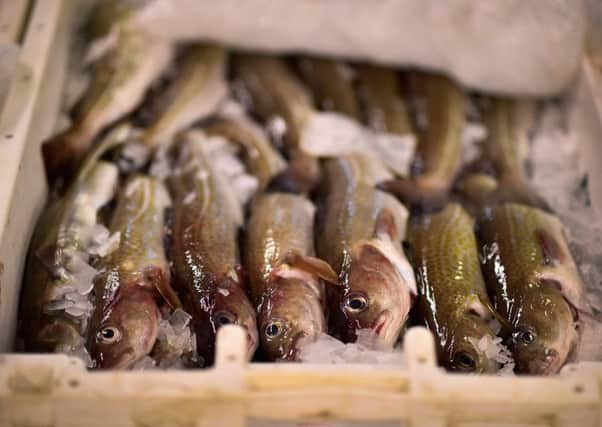Stephen Jardine: Food industry is silent on benefits of Brexit


Leading businesses gathered in the city for the 2018 North East Scotland Food and Drink Awards and the list of winners reflected the vibrancy of the industry. With a record number of entries and more new companies competing than ever before, trophies went to ice cream makers, brewers, rapeseed oil producers and even Scotland’s first producer of Absinthe.
It was a night of real celebration but just 30 miles north in Peterhead, the mood was different. Scotland’s biggest fishing port was still coming to terms with the disappointment of learning that the latest draft agreement on Brexit means the quotas that shape the industry will continue to be negotiated by the EU during a two-year transition period.
Advertisement
Hide AdAdvertisement
Hide AdFishing leaders had expected the UK to withdraw from the Common Fisheries Policy on the day Britain leaves the European Union next March. However concessions made as part of the overall agreement mean Brussels will retain effective control for a further 24 months. The SNP called the deal “a sell-out” and urged Scottish Tory leader Ruth Davidson to apologise to Scotland’s fishermen. Theresa May was also warned she could face a full-on rebellion by Scottish Conservative MPs if any further ground is given. No one said Brexit was going to be easy and rows like this could be seen as just some of the obstacles on the bumpy road to departure but there is little sign of anything else on the horizon. At a dinner of food and drink business leaders in Edinburgh this week, someone asked if there was any sign of potential trading benefits from Brexit. The response was just silence.
No one could see how their business would be better off on the basis of where we are at the moment. With a year to go before departure, of course that could change but so far it’s hard to see the optimists for all the pessimists. With so much at stake, that is worrying. Latest figures show last year was a record breaker for overseas food and drink exports from Scotland, up £570 million to around £6 billion. Within that total, whisky and salmon continue to lead the way but underpinning all that is the fact that 40 per cent of what we send abroad goes directly to EU countries.
Access to markets may be the big concern but even if you set aside concerns about the impact of losing tariff-free trading, you then come up against other issues such as the future of food labelling. With powers over that to be reserved for the UK Government, just how easy will it be for Scottish brands to market what they produce distinctively and effectively? Then there is the question of just who will be producing it. Walkers Shortbread say they employ up to 500 EU nationals out of a total workforce on 1,700 during peak periods. A perception that they will be less welcome here could combine with a weak pound to drive those kind of workers away.
We should be just two months away from the first Scottish strawberries reaching the shops. It is a product that sums up our food and drink sector at it’s very best but some major growers are already reporting significant shortages when it
comes to finding the EU nationals they need to pick the produce. If that continues to be an issue, the only solution might be to switch from soft fruits to crops that can be harvested mechanically.
With a year to go, so much remains uncertain. There are bright spots. Exports to Asia and North America are growing and the exchange rate makes Scotland attractive to tourists but when it comes to food and drink, the benefits of Brexit remain mere dreams.
